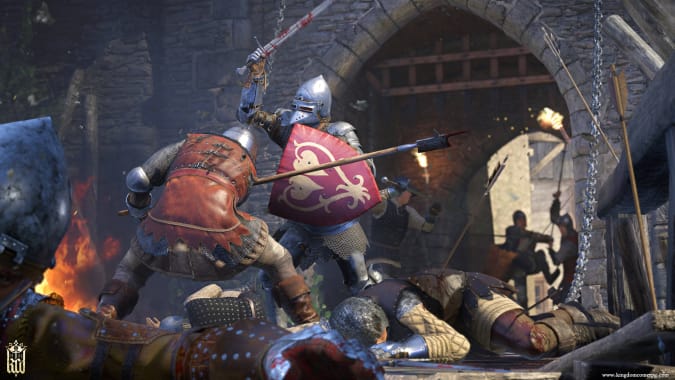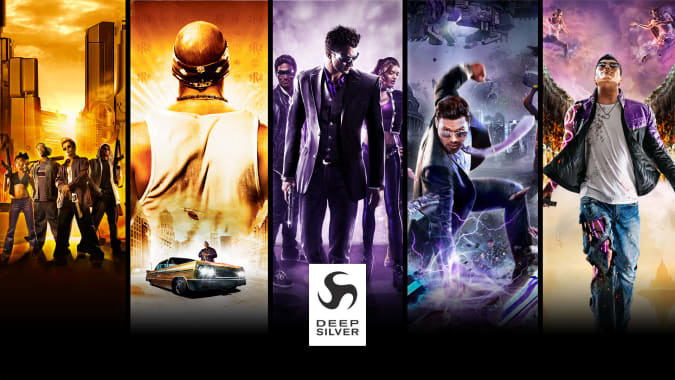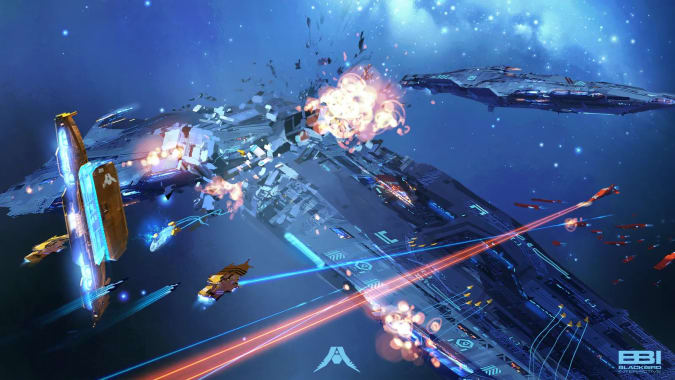
[ad_1]
The games industry is booming and shrinking at the same time, as the biggest companies open their checkbooks and swallow their rivals whole. Microsoft, Nintendo and Electronic Arts have all recently spent big to buy even household names in the development and publishing world. Even a mega-publisher like ZeniMax isn’t immune to the sums of cash being thrown around the industry right now. It’s this that makes Embracer’s story all the more interesting, since it’s buying up a huge number of games developers in an attempt to create something too big for any other company to swallow.
Embracer was founded in 2008 by Swedish entrepreneur Lars Wingefors who had previously founded brick-and-mortar game retailer Nordic Games. Nordic Games Publishing, as it was then known, published its first games, making small but tidy sums in the process. In 2011, it bought the assets of Austrian publisher JoWooD Entertainment after it went bankrupt. In 2013, it did the same thing with THQ when it filed for Chapter 11, buying some of its assets and, a year later, rebranding itself as THQ Nordic. It subsequently went public, raising successive rounds of cash from investors to help it buy more companies to place under its umbrella.
In 2018, THQ Nordic purchased Koch Media, an entertainment company which owns Deep Silver and other media interests. Later that year, it bought Coffee Stain Studios, and pledged to operate both Deep Silver and Coffee Stain as independent businesses. But it wouldn’t be until 2019, when THQ Nordic (the parent company) rebranded itself as Embracer, that the company’s wild trolley dash began in earnest. Since mid-2019, Embracer has bought or invested in nearly 30 different developers and publishers.

Warhorse
The majority of these deals have been, compared to the sort of figures Microsoft is throwing around, pretty small. Tarsier Studios was picked up in December 2019 for $10.5 million, while DECA Games was priced at €25 million ($30.4 million). It has, however, made some more significant purchases, including Saber Interactive for $525 million and, most notably, Gearbox Software for $1.3 billion. In fact, February 2021 saw the company spend a small fortune on Gearbox, Easybrain and Aspyr.
On its corporate website, Embracer boasts that it has eight “operative groups” including THQ Nordic (the publisher), Koch Media, and Coffee Stain. Joining that roster is Amplifier (which invests in game startups), Saber Interactive (ports and remastering) DECA (mobile games), Easybrain (puzzle games) and Gearbox. It adds that, across the company, it has 69 development studios across 40 countries and employs more than 7,000 people.
But, more importantly than the businesses Embracer owns is the intellectual property, and the franchises, that it now controls. The list reads as a who’s who of beloved older titles that either were taken down by the failure of their parent companies or that have small, but dedicated audiences. Embracer boasts that it now controls (deep breath) Saints Row, Goat Simulator, Dead Island, Metro, TimeSplitters, Borderlands, Darksiders, MX vs ATV, Kingdoms of Amalur, Satisfactory, Wreckfest, Insurgency and World War Z. And, for a franchise like TimeSplitters, Embracer is looking to breathe new life into the series with a new title from the game’s original creators. In addition, Coffee Stain publishes Valheim, a currently very-buzzy game from Iron Gate Studio.

Deep Silver
And at E3 this year, Embracer subsidiary Koch Media has announced the launch of a new “Premium Gaming” label named Prime Matter. As part of the Summer Game Fest announcements, Prime Matter revealed that it is working on the following titles: Payday 3, Crossfire: Legion (a new RTS from Homeworld 3 and Hardspace: Shipbreaker makers BlackBird Interactive), a new Painkiller game and King’s Bounty 2. It also announced a raft of new titles, including Scars Above, Codename Final Form, Dolmen, The Last Oricru and Echoes of the End, amongst others.
Embracer’s strategy seems to center on hoovering up as many mid-tier franchises as possible and winning through volume. And founder Lars Wingefors has said that he prefers things to be smaller, and messier, than building a company that’s yoked to a single AAA franchise. In a 2018 interview with GamesIndustry, he said that his strategy was to focus on a “diversified pipeline,” with a view to “slowly build something substantial that will be sustainable for a very long time.”
In that same interview, Wingefors also explained that this more-is-more approach also trickles down to how the business is run. He explained that Embracer doesn’t want to create a single, monolithic business which, in his words, would “destroy a lot of value.” Instead he wants each company operating as “brothers and sisters, but […] totally running their own businesses.”

Blackbird Interactive
You may expect that, after spending so much in the last year, that Embracer is now looking to slow down and digest its meal. The company doesn’t seem to agree, and in its most recent financial statements said that it had raised another $890 million to fuel further purchases. In fact, it said that it had around $2 billion “in cash and available credit facilities,” to enable its spending spree. And developers are interested in joining the party, with the company saying that it had “engaged with more than 150 companies about joining the group,” with 20 companies currently in “late-stage talks.”
One of the things that Embracer has stressed in several of its public-facing statements is that it takes time for these investments to pay off. In 2019, it said that “the development cycle for new games runs over several years, and thus the contribution from these investments lies a few years down the road.” And, in its most recent report, it said that it expects to see the 2022 financial year as the first one where the first of those purchases reach audiences. It will only be then that we see if Embracer’s strategy of owning the best of the rest is a winning one.
All products recommended by Engadget are selected by our editorial team, independent of our parent company. Some of our stories include affiliate links. If you buy something through one of these links, we may earn an affiliate commission.
[ad_2]
Source link






